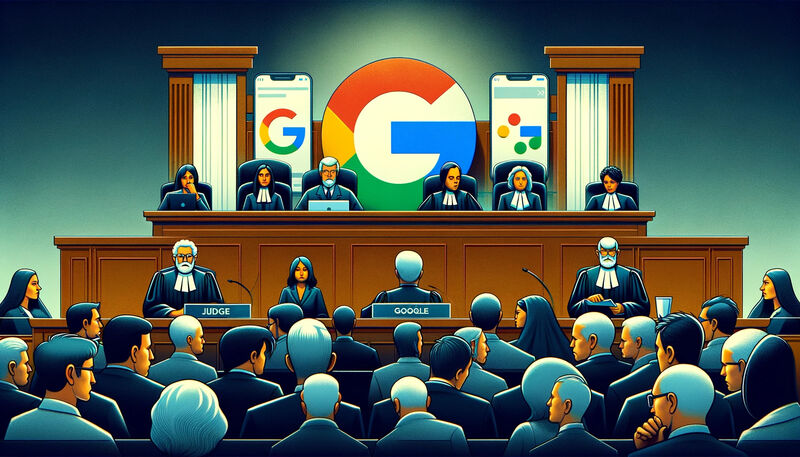DOJ Alleges Google Destroyed Key Evidence in Antitrust Case

Abstract: As Google's landmark antitrust trial approaches its conclusion, the U.S. Department of Justice has accused the tech giant of erasing hundreds of thousands of internal communications that could have been critical in demonstrating anticompetitive practices. This development casts a shadow over the integrity of Google's business operations and its dominance in the search engine market.
Introduction:
In what could be a pivotal turn in the ongoing antitrust litigation against Google, the Department of Justice (DOJ) has accused the company of destroying substantial internal communication records. These allegations surface as the trial, which could decide the future of Google’s search engine monopoly, draws to a close.
Allegations of Evidence Destruction:
According to the DOJ, Google implemented an internal policy that encouraged employees to disable chat history and delete logs that discussed sensitive business strategies. These strategies included revenue-sharing agreements and the distribution of mobile apps, which are central to the DOJ’s case against Google. The government contends that these chats could have shown Google's intent to unlawfully marginalize competitors and uphold its search market hegemony.
During the heated closing arguments on Friday, Judge Amit Mehta expressed his astonishment at Google's actions, criticizing the company's document retention policy as severely lacking. The Justice Department has urged the court to assume that the deleted chats contained evidence of anticompetitive behavior, requesting harsh sanctions against Google.
Google's Defense:
Responding to the allegations, Google's attorney, Colette Connor, argued that the DOJ had not proven the relevance of the destroyed chats to the ongoing case. She defended Google's actions by stating that the company had disclosed its chat retention practices to at least one state involved in the lawsuit—Texas. Despite this defense, DOJ lawyer Kenneth Dintzer argued that Google’s selective disclosure did not absolve it of broader responsibilities and indicated a deliberate intent to withhold crucial information from the litigation.
Broader Implications and DOJ’s Strategy:
The dispute over internal communications is a fragment of a larger battle concerning Google's dominance in the search engine market. The DOJ has drawn parallels between Google’s conduct and the landmark Microsoft antitrust case of the 1990s, suggesting that Google's agreements with smartphone manufacturers and browsers have similarly suppressed competition.
Dintzer emphasized the similarities to the Microsoft case, stating that the Google case "fits like a glove" with the precedent set in the 1990s, where Microsoft was accused of pushing an inferior product on consumers to stifle competition.
Conclusion and What’s Next:
The outcome of this trial rests in the hands of Judge Amit Mehta and could potentially lead to significant repercussions for Google, including the possibility of corporate restructuring to mitigate its monopolistic behavior. The DOJ is also preparing for another legal battle against Google's advertising business set for the fall, signaling that the legal challenges for Google are far from over.
This case is not only a crucial test of antitrust law in the digital age but also a critical moment for Google, which has shaped the internet landscape for over two decades. The tech community and regulatory bodies alike await Judge Mehta’s decision, which will have far-reaching implications for the tech industry and antitrust enforcement.

